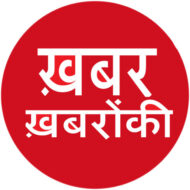President Droupadi Murmu Asserts ‘Make in India’ and ‘Aatmanirbhar Bharat’ as Cornerstones of Progress”

Ira Singh
Khabar Khabaron Ki,31 Jan’24
The Budget(interim budget) Session of Parliament began today with President Droupadi Murmu addressing a joint sitting of the Lok Sabha and the Rajya Sabha. The Budget Session will be the last Parliamentary session before the Lok Sabha polls are held later this year. Finance Minister Nirmala Sitharaman will present the interim budget on February 1 (Thursday). The new government will present the full budget after it assumes office. The brief Budget session of Parliament is scheduled to end on February 9.
“’Make in India’ and ‘Aatmanirbhar Bharat’ have become our strengths,” says President Droupadi Murmu.
President Droupadi Murmu during her address in the Parliament asserted that 2023 was a historic year for the country when it maintained the tag of being the fastest- growing major economy.
“The year 2023 was a historic year for India, when it grew the fastest among major economies despite global crisis. India grew about 7.5 per cent for two consecutive quarters,” she told the Parliament, on behalf of the central government.
Further,in her address to a joint sitting in Parliament, President Murmu said inflation in the country was kept under control despite the Covid-19 pandemic and two major wars,the Ukraine-Russia war and the Israel-Hamas war.
“In the past years, the world witnessed two major wars and faced a pandemic like Covid-19. Despite such global crises, my government kept inflation under control in the country and did not let the burden on common Indians increase,” she said.
President Droupadi Murmu highlighted the achievements of the Narendra Modi-led government in the past 10 years and said poverty was being alleviated on a large-scale.
Ahead of the Budget session of Parliament, Prime Minister Narendra Modi on Wednesday asked the Opposition MPs, who were suspended in the last session for their unruly behaviour, to introspect. He said nobody would remember the unruly behaviour of the Opposition lawmakers.
“Indian Economy–A Review” Unveils Finance Ministry’s Optimistic Growth Projections
One of the most significant part of Parliament’s Budget session is the presentation of the Economic Survey on January 31.However, this year the Economic Survey will not be presented a day before the interim Budget is announced by the FM. The reason behind this is that this is not a full budget, but an interim budget being presented by the government.
The report ‘Indian Economy—A Review’, prepared by the office of Chief Economic Advisor (CEA) V Anantha Nageswaran, highlighted that it is not the Economic Survey of India—a document prepared by the CEA and presented by the Finance Minister in Lok Sabha, typically a day ahead of the Union Budget on February 1 every year.This is because 2024 is an election year and the regular Budget process may be disrupted if there is a change in government.
Instead, the Centre has come out with a report on India’s journey from the past 10 years titled ‘Indian Economy–A Review’. The report, which also shares glimpses of the outlook for the economy in the coming years, has been prepared by the office of the CEA V Anantha Nageswaran.
The report ‘Indian Economy—A Review’ says the country will become a $5 trillion economy in the next three years and can aspire for $7 trillion by 2030.
Indian Economy: Review,’ the Finance Ministry has expressed optimism about the country’s economic growth, projecting a growth rate of 7 percent or more in the current financial year and maintaining this momentum into the next fiscal year. The report, led by Chief Economic Advisor V Ananth Nageswaran, suggests that if these projections hold true, it would mark the fourth consecutive year of 7 percent or higher growth, showcasing the resilience and potential of the Indian economy.
The Finance Ministry lauded this potential achievement, emphasizing it as proof of the strength and capability inherent in the Indian economy. The report also hailed the growth estimates as a positive sign for the future, signaling sustained economic expansion. According to the report, India must address key areas such as reducing logistics costs and enhancing product quality to retain and expand market share. It outlines three major challenges for the economy in the coming years, including the deceleration in global trade, the impact of Artificial Intelligence on services trade, and the energy transition. Despite these challenges, the report suggests that India, due to policies implemented in the last decade, is well-positioned to navigate these hurdles successfully.The document also emphasizes priority areas for improvement, such as enhancing skills, improving learning outcomes, ensuring health security, addressing energy concerns, reducing compliance burdens for MSMEs, and achieving a balanced gender ratio in the labor force.Perhaps most ambitiously, the report suggests that India has the potential to become the world’s third-largest economy within the next three years. The GDP is projected to reach $5 trillion during this period, with an envisioned ascent to $7 trillion by 2030, presenting a remarkable economic growth trajectory.
As stakeholders eagerly await the interim budget presentation on February 1, the ‘Indian Economy: Review’ provides a robust foundation for understanding the nation’s economic landscape, challenges, and opportunities on the horizon. The report’s projections set the stage for comprehensive policy discussions and strategic planning to steer India toward sustained economic prosperity.
Previous Economic Survey
The last Economic Survey pegged India’s GDP growth for fiscal 2023–24 in a broad range of 6-6.8%, depending on the trajectory of economic and political developments globally. The survey’s baseline forecast for real GDP growth is 6.5%. The Economic Survey 2021–22 projected India to grow by 8–8.5%.
The country’s first Economic Survey was presented in 1950–51. Until 1964, the Economic Survey and the Union Budget were presented together.
